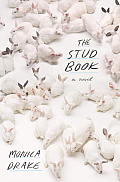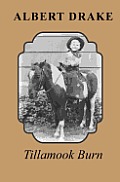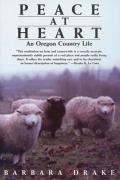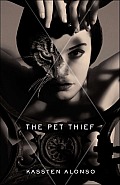
Find a notebook small enough to slide into your shirt pocket, or your back pocket, the pocket on your jeans; small enough to lose in the depths of your purse or slip in a tiny purse next to your ID and credit card when you go out dancing. It works best if it can be there, with you, when you don't know it's there.
This notebook might cost 79 cents out of a bin. You could lift it from a hotel lobby or bedside, where housekeeping arranged it near the phone. Maybe on a flush day you'll spend $4.95 or even $8 at the art museum so your notebook can sport a yellow-toned reproduction of van Gogh with his bandaged ear or one of Toulouse-Lautrec's dancers kicking up a heel.
It's all the same. That's the cover.
What matters is that it has paper inside, and you've already scored a pen. Feel the cover between your index finger and your thumb. Open your notebook. Uncap your pen.
My father grew up on Portland's Eastside, in a part of town some call Felony Flats. His mother, my grandmother, said there was a time when she and her husband used to cook over "a hole in the ground where steam came out." I don't know what that hole in the ground was. I don't know what kind of steam she cooked over, or why they didn't build a fire, but from the sound of everything, my father's parents were broke and young.
 My father, Albert Drake, a.k.a. Bud Drake, started writing things down as soon as he could write. Nobody around him was even reading much. He'd keep a tiny notebook, write down what he had for lunch. Maybe on a fanciful day he'd write down what he dreamed of for Christmas.
My father, Albert Drake, a.k.a. Bud Drake, started writing things down as soon as he could write. Nobody around him was even reading much. He'd keep a tiny notebook, write down what he had for lunch. Maybe on a fanciful day he'd write down what he dreamed of for Christmas.
When I was a kid, on a walk in the woods with my dad, if we'd see something, I'd look to see if he'd pull a notebook from his shirt pocket and write a note. Sometimes I'd ask, "Aren't you going to write that down?"
Now he's 78 and he still writes things down. Actually, he's been honored with a spot in The Best American Short Stories, for a story called "The Chicken That Became a Rat," that's in his collection, Tillamook Burn. He wrote a novel, Beyond the Pavement, a book called Street Was Fun in '51, and one called I Remember the Day James Dean Died. More often these days, he writes automotive history. If you want to know anything about the old days of autos, if you want to know where my dad's notebook and a few cars have taken him, you can check it out here.
The poet Richard Hugo said, in a documentary by Annick Smith, that he was raised by his grandmother. She went to bed early. He'd stay up and write. He said, "...putting words down on paper to amuse myself. That's writing."
 I love that definition. Those words you put down? They should amuse yourself first.
I love that definition. Those words you put down? They should amuse yourself first.
Keep your notebook close at hand. Maybe you'll overhear a stranger, a friend, or a strange friend, say something like, "It's my one desire, to feel," and instead of answering, you have to think about that. You'll want to write it down. Maybe you're at a lecture — say it's a Rebecca Solnit lecture — and speaking from the podium, she says, "The one thing an optimist and a pessimist have in common is that they both think they know the future." Write that down. Carry it with you.
Not everything needs to be poured into social media on the spot. It's not all worth spitting out fast. Hang on to a few words. Let them settle. Let them knock against each other, until they form new ideas.
The process of writing keeps you reaching toward a larger vision, that greater understanding. Start with a notebook, and a pen.
My mother, Barbara Drake, is a writer, too. She's the author of the essay collection Peace at Heart, about Oregon country living. She's also a poet, with books out like Love at the Egyptian Theatre and more. I don't know when exactly she takes notes. She doesn't quite let on. I'd guess they're on her computer, or in a full-sized hardbound notebook.
 Sometimes I have a notebook; sometimes I'm without. But there's always material drifting past, floating by, the rich river of inspiration. A notebook can contain a bit of it, like dipping a jar in a creek.
Sometimes I have a notebook; sometimes I'm without. But there's always material drifting past, floating by, the rich river of inspiration. A notebook can contain a bit of it, like dipping a jar in a creek.
My father built his life with words. He moved himself from poverty to a solid career, health insurance for life. He met my mom, and they became writers together. She made her life out of writing, too. Now my husband is a writer, Kassten Alonso, with a new book out called The Pet Thief. I'm doing what I can, with two books out in the world. Our young daughter has started "putting words on the page to amuse herself," along with a small circle of friends — her writing workshop in the making, I can tell. Writing is more than a practice. It's a vision, an interpretation of existence, a way of life. I have drafts, pages, essays, ideas, so much more, always, at home.
More from Monica Drake on PowellsBooks.Blog: